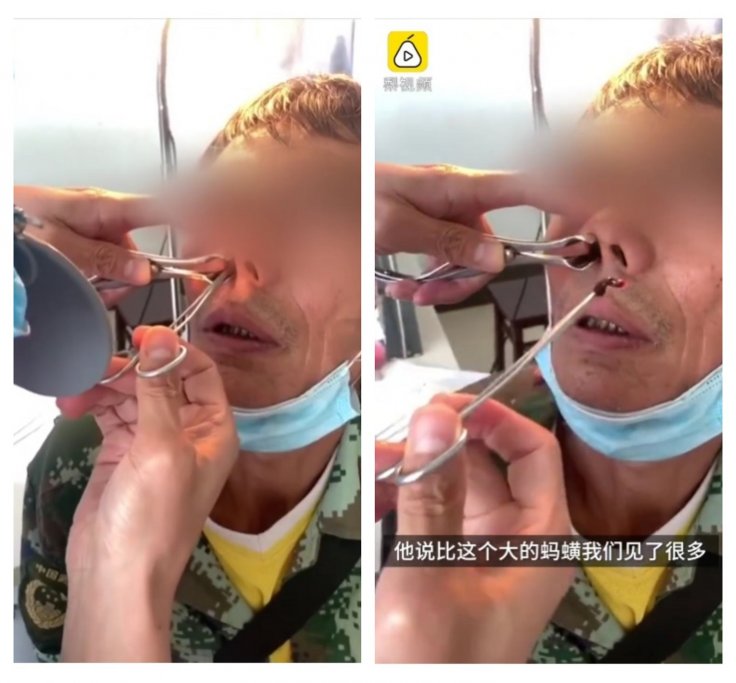Living with a parasite for two weeks seems like a far-fetched idea. But the doctor pulled out a three-centimeter leech from a Chinese farmer's nostrils. The 57-year-old was suffering from repeated nosebleeds and complained about feeling sick.
As per doctors in Pu'er, China, the farmer Yunnan province drank contaminated water from a spring in the wild while farming. After a week, he started to have nosebleeds before he sought medical attention. "After we examined him, we discovered there was a live leech living in his nasal cavity," the doctor said.
The video of the operation surfaced on China's video news outlet Pear. It showed a doctor pulling out the 3cms-long creature, which was wriggling inside the nostrils, from the unnamed farmer. However, the farmer was unperturbed saying he had seen bigger leeches that that and complained to the doctors "it is too small", Daily Mail reported.

A leech can suck up blood up to five times its body weight. It does so to extract nutrients from the blood and grow in size while also reproduce. It has jaws to attach to the skin and suck up blood and can also live inside a person's nose or mouth. While extracting blood, leeches use an anticoagulant called hirudin to stop the hosts' blood from clotting.
The condition is called hirudiniasis and the symptoms include coughing blood, nosebleeds, fever, anemia, chest pain, difficulty breathing and difficulty swallowing. If the parasite is not extracted, it can lead to serious complications.
A similar case was found in Vietnam when a 22-year-old woman had a leech removed from her nostrils. But that's not it. A hospital in Cambodia removed a leech from a man's penis after the creature entered while he was swimming. The leech managed to enter the man's bladder. After the man complained of pain while urinating and sought medical help, the doctors inserted a camera through his urethra and stunned to find a leech inside his bladder.
Cases of hirudiniasis are common in Southeast Asia as leeches generally live in the freshwater and swamps. Some of the species are also found in the marine environment.
Medicinal Leeches
Hirudiniasis, however, is not always bad. In medical science, leeches have been used to treat skin disease and infection. Other than that, there are several other benefits. In patients who risk limb amputation because of diabetes, leeches are used for their anticoagulant saliva. Even in cosmetic surgery, leeches are used when there is a risk of soft tissue damage. Apart from that, it is used to treat various blood clots and varicose veins (twisted veins).
In ancient medical practice, in Egypt and India leeches were used to treat patients with skin diseases, sciatica, musculoskeletal pains, phlebitis (inflammation of veins) and hemorrhoids.








